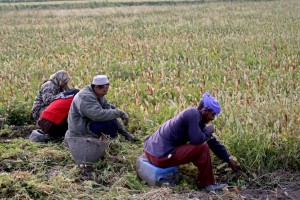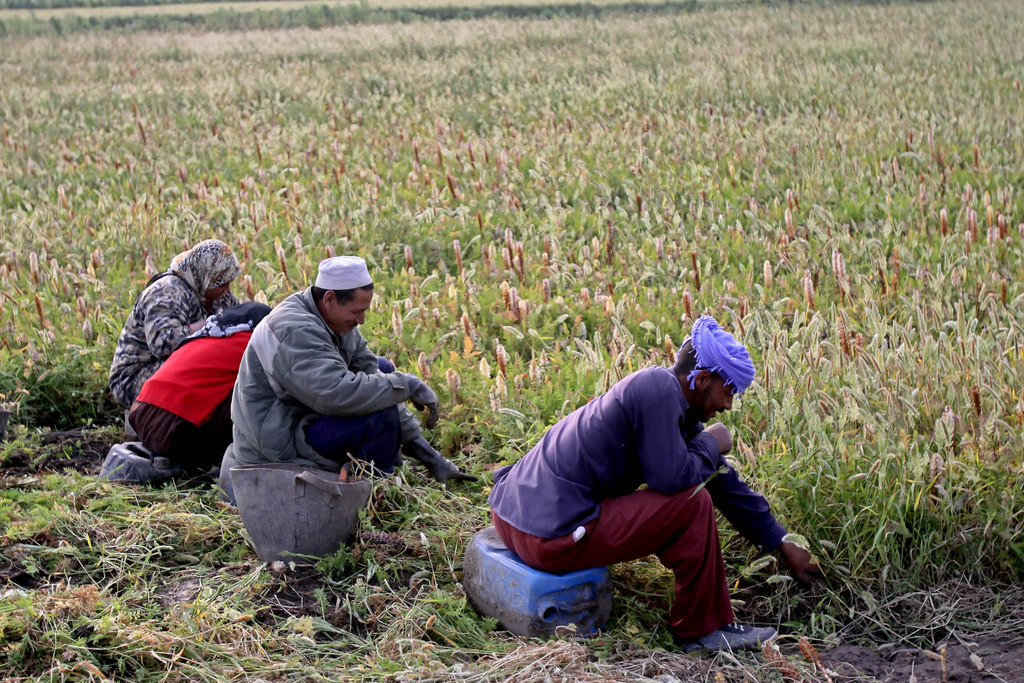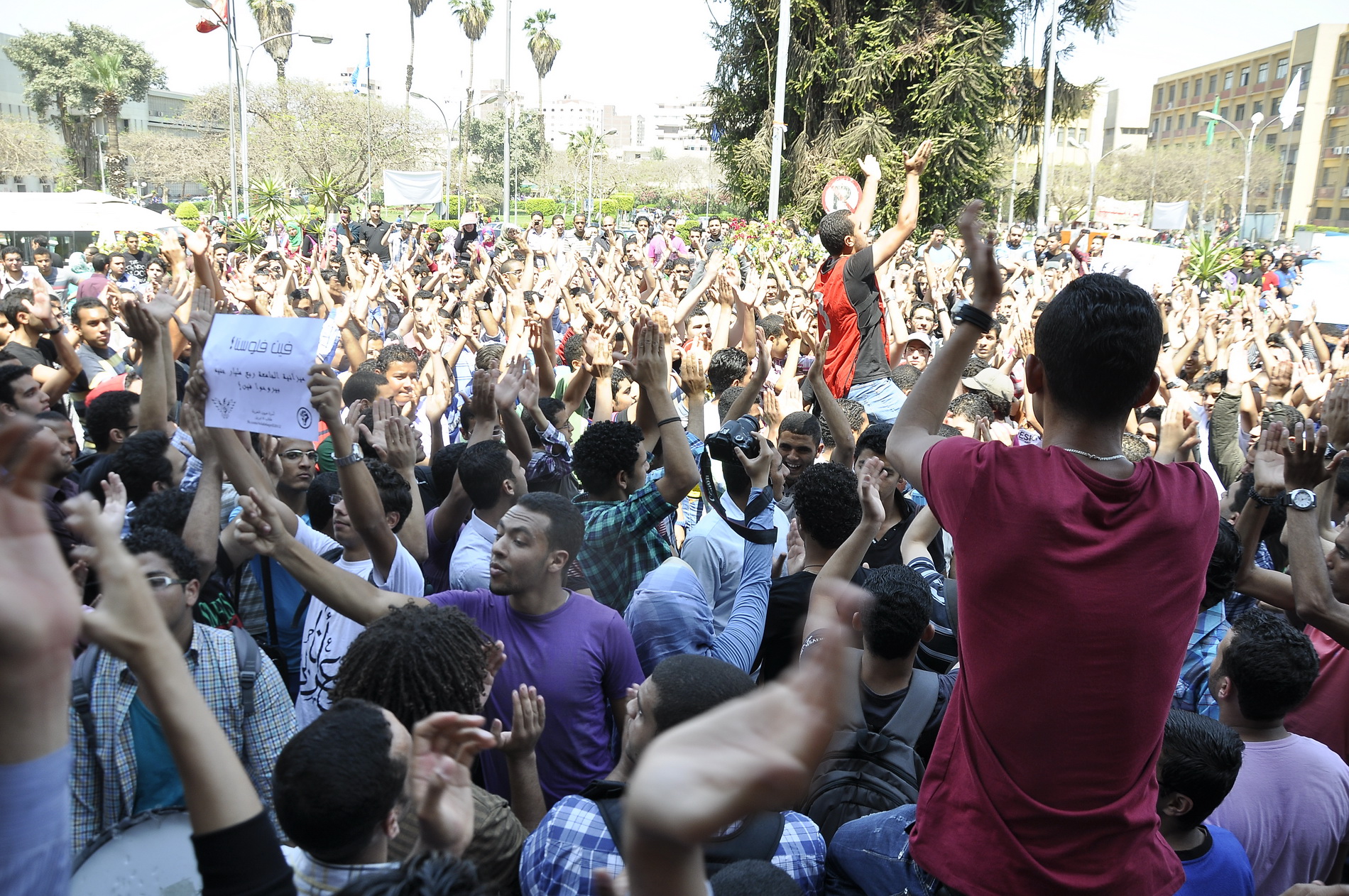
The opaque definition of farmers and workers in the constitution has left them sceptical about their just representation in the upcoming parliamentary elections.
In a conference on Wednesday at noon, Kamal Abu Eita, head of the Egyptian Federation of Independent Unions, said a part of the problem is that workers are defined in a way that could allow doctors and even the prime minister to run as a representative of workers in parliamentary elections.
Since 1964, workers and farmers have had a 50% quota in parliament. It was introduced by Gamal Abdel-Nasser and since his death the quota system has been abused.
Article 229 of the constitution maintains the quota for farmers and workers in the upcoming House of Representatives elections.
Khaled Sha’aban, the workers’ officer in the Egyptian Social Democratic Party, believes that this was a “bribe” for farmers and workers to vote ‘Yes’ in the referendum on the draft constitution.
But the article defines workers as anyone who works for someone else in return for a wage or salary.
Abdel-Kereem said the definition should make clear that a worker is anyone who depends on “manual or mental labour” as the main source of income. Sha’ban added that a worker should be a member of a union.
Farmers are defined in the constitution as anyone who has worked in farming for ten years before contesting for a seat in parliament. Mohamed Barghash, co-founder of the Green Egypt Party said farmers and workers together form around 77% of Egyptians yet they were not represented in the Constituent Assembly.
Sha’aban believes the definition should state that a farmer is the person whose livelihood depends on farming.
Based on Article 129 of the constitution, in order for someone to contest for a seat for the upper house of parliament, the Shura Council, they have to have a degree in higher education.
Sha’aban said: “The constitution completely excludes workers and farmers from the Shura Council.”

